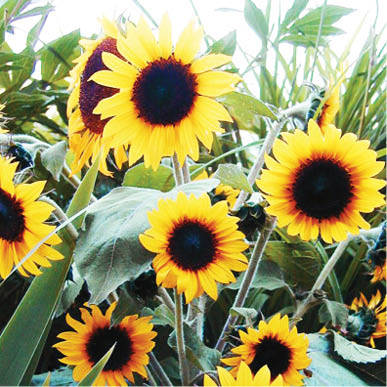RMRDC boosts Safflower plant production through improved seedlings
The Raw Materials Research and Development Council (RMRDC) has developed improved safflower seedlings to boost planting and production of the plant. The RMRDC’s Director General, Hussaini Doko Ibrahim, who disclosed this at the presentation ceremony of safflower seeds for multi-locational trails to some farmers and marketers in Abuja, said the council was stepping efforts at […]


The Raw Materials Research and Development Council (RMRDC) has developed improved safflower seedlings to boost planting and production of the plant.
The RMRDC’s Director General, Hussaini Doko Ibrahim, who disclosed this at the presentation ceremony of safflower seeds for multi-locational trails to some farmers and marketers in Abuja, said the council was stepping efforts at boosting agricultural raw materials for industrial use.
Represented by the Director of Technology Development, Dr Abimbola Ogunwusi, the D-G added that the council’s agricultural boosting mandate is aimed at bridging the gap between raw agric materials’ demand and supply.
“Over the years, the council has boosted the production of some key crops through the provision of improved seedlings and other farm inputs to farmers.
“Apart from this, the council also works with farmers to enthrone global best practices in the production of these agricultural raw materials to ensure increased production and productivity,’’ he said.
He said the presentation of improved safflower seedlings to farmers would increase the pool of industrial and agricultural commodities, adding that the introduction of the exotic seedling would improve the economic wellbeing of the country.
“A number of companies are importing the flowers and seeds of the plant in substantial quantities.
“This is due to the increasing use of the flower in herbal medicines, teas and for extraction of dyes”, the DG stated.
He said the improved safflower seeds had been planted on trial plots in Zaria, Jos and Benin, and performed well in all the locations.
The council has put in place plans for a buy-back arrangement of the seeds and flowers for further development purposes, he also said.
He said: “The plant is drought tolerant and can grow in various parts of the country. Safflower plant is tolerant of severe drought and salinity. It can be cultivated as an oil crop, under poor environmental conditions.
“The optimum temperature for germination is about 15.5 degrees centigrade. “The day temperature in the range of between 24 and 32 degrees centigrade is congenial for higher yields.
“It can be cultivated from sea level to an elevation of 100m above sea level. The crop is not fit for tracts of heavy rainfall, it grows well in areas having rainfall between 60-90cm,’’ he said.
